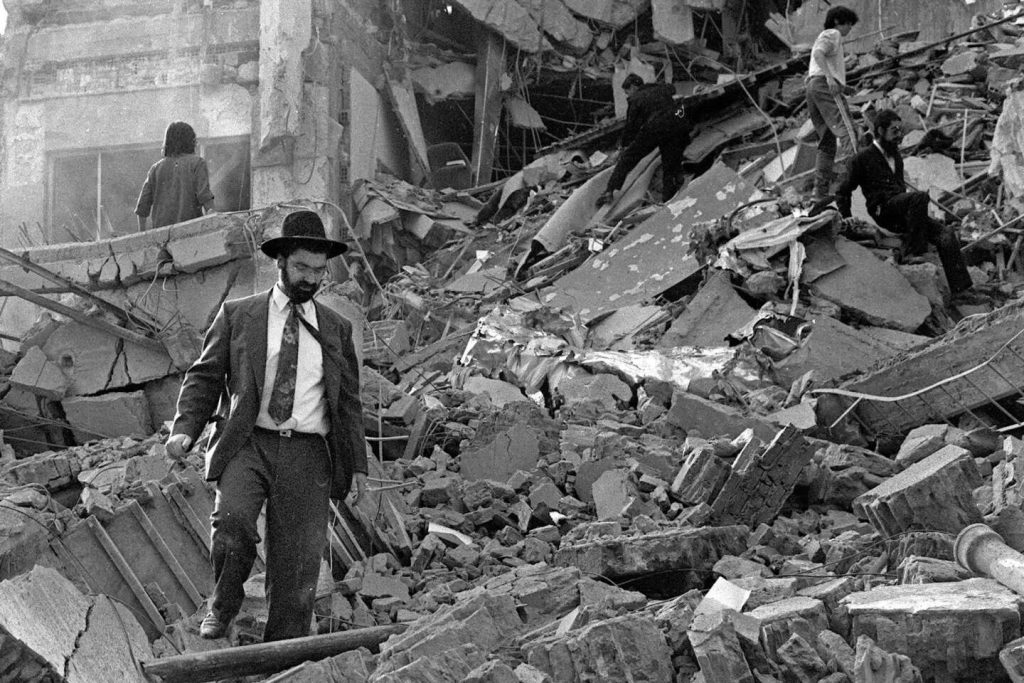The Argentine justice system has determined that the bombings at the Israeli embassy in 1992 and the AMIA Jewish community center in 1994 in Buenos Aires were orchestrated by Iran, with Hezbollah being identified as the perpetrator of the attacks. The bombings resulted in 29 and 85 deaths respectively. The court also labeled Iran as a “terrorist state” and classified the AMIA bombing as a “crime against humanity.” The decision was hailed as historic by the local Jewish community.
The judges found that the motivation behind the bombings was linked to the foreign policy decisions of then-Argentine President Carlos Menem. The bombings were carried out as a response to the unilateral decision by the Argentine government to cancel nuclear supply contracts with Iran between late 1991 and mid-1992. The ruling, considered historical and unique in Argentina, has opened the possibility of pursuing legal action at the International Criminal Court due to the clear establishment of Iran’s involvement as a state sponsor of terrorism.
The Iranian government has consistently denied any involvement in the AMIA bombing, with high-ranking officials from that time refusing to be interrogated by Argentine authorities. Despite the lack of a formal claim of responsibility, the Argentine justice system and Israel have pointed to Iran and Hezbollah as the masterminds behind the attacks. Arrest warrants have been in place since 2006 for eight Iranians allegedly involved in the bombings, and in 2023, an international arrest warrant was requested for four Lebanese nationals suspected of playing a secondary role in the AMIA bombing.
The court’s decision comes at a time when Argentina is facing renewed concerns about potential anti-Semitic terrorist threats, especially in light of President Javier Milei’s close ties with Israel and his proposal to relocate the Argentine embassy to Jerusalem. Milei’s comments have raised fears of Argentina being targeted by terrorist attacks, given the previous bombings in 1992 and 1994. The country’s Jewish community, the largest in Latin America with over 250,000 members, remains vigilant against any potential threats.
The ruling by the Argentine court represents a significant development in the decades-long investigation into the AMIA bombing and the Israeli embassy attack, shedding light on the state involvement of Iran and the militant group Hezbollah. The decision has been welcomed by the Jewish community in Argentina and is seen as a step towards achieving justice for the victims of the horrific bombings in 1992 and 1994. The recognition of Iran as a state sponsor of terrorism further underscores the complexities and challenges faced by countries in combating terrorism on a global scale.
In conclusion, the court’s ruling marks a pivotal moment in the quest for truth and accountability in the wake of the tragic bombings in Buenos Aires. The determination of Iran’s role in the attacks highlights the need for international cooperation in addressing state-sponsored terrorism. The pursuit of justice for the victims and their families remains paramount, as Argentina continues to grapple with the legacy of these acts of violence. The decision sets a precedent for holding states accountable for acts of terrorism and serves as a beacon of hope for justice and closure in cases of terrorism worldwide.















